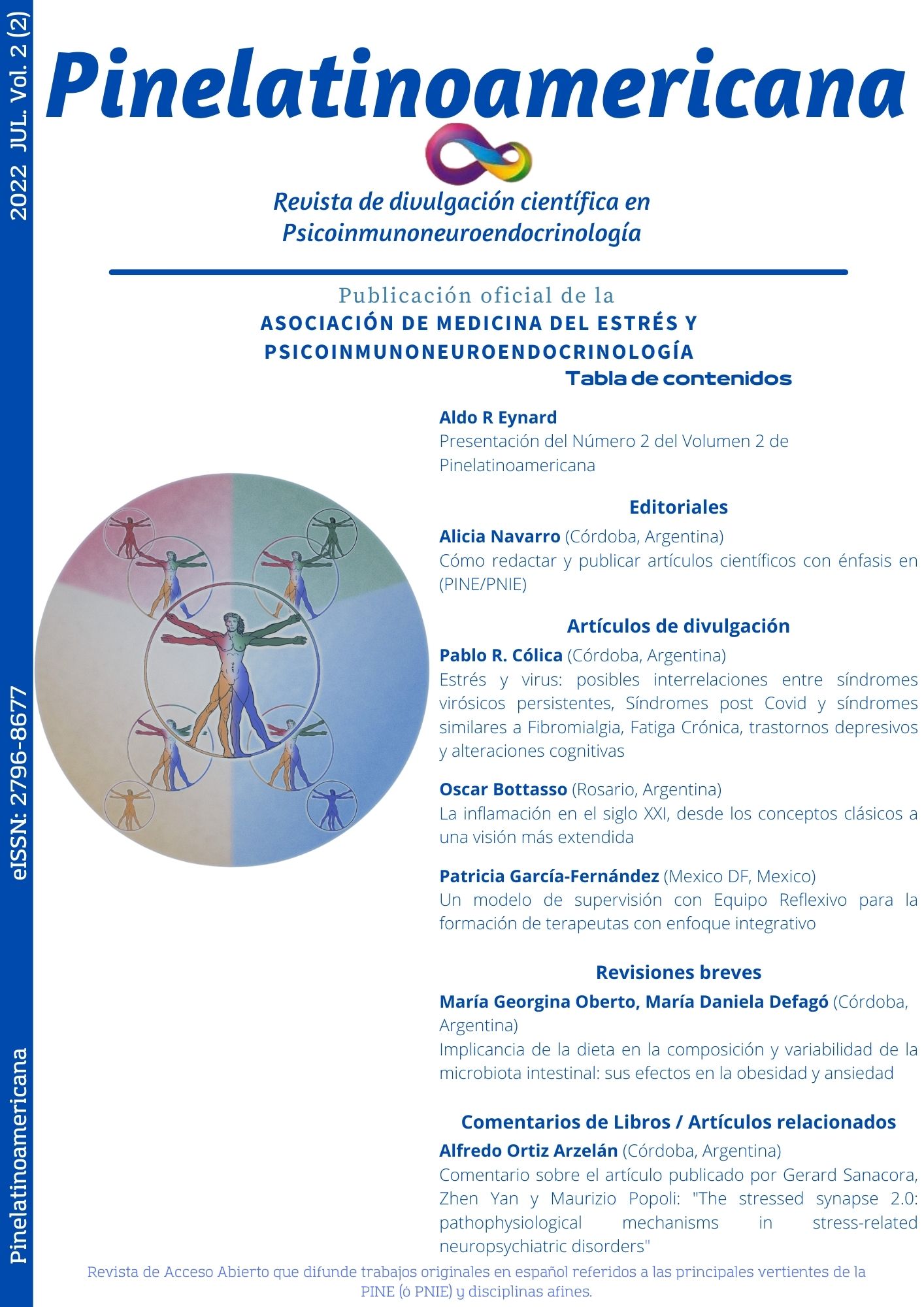Abstract
This paper describes the Reflective Team (ER, initials in Spanish) as a model for training psychotherapists with an integrative approach. The theoretical basis of the ER and the objectives of supervision are presented to justify the choice of this model. It also describes the methodology, techniques, and tools used in supervision to discuss the possibilities and results obtained.
References
Andersen, T. (1994). El equipo reflexivo. Diálogos y diálogos sobre los diálogos. Barcelona: Gedisa.
Andersen. T. (2003). Una colaboración: algo llamado supervisión. En: G. Licea, I. Paquentín y H. Selicoff (Eds.), Voces y más voces II. Reflexiones sobre supervisión. México: Instituto de Psicoterapia Alinde.
Anderson, H. (2000). Supervision as a collaborative learning community. American Association for Marriage and Family Therapy Supervision Bulletin, 7-10.
American Psychological Association. (2014). Guidelines for Clinical Supervision in Health Service Psychology. http://apa.org/about/policy/guidelines-supervision.pdf
Demichelis Machorro, V. (2019). Counseling en México: un enfoque integrativo. En: A. Tena (Ed.), Psicoterapia integrativa: una aproximación a la práctica clínica basada en evidencias. México: Manual Moderno.
Elkaïm, M. (1989). Si me amas, no me ames. Barcelona: Gedisa.
Fernández, E., London, S. y Tarragona, M. (2003). Las conversaciones reflexivas en el trabajo clínico, el entrenamiento y la supervisión. En G. Licea, I. Paquentín y H. Selicoff (Eds.), Voces y más voces II: El equipo reflexivo en México. México: Instituto de Psicoterapia Alinde.
García-Fernández, P. (2012). Supervisión de la contratransferencia en la orientación psicológica a enfermos crónico-terminales hospitalizados. En Hernández Valderrama, L. y Lozano Treviño, L. (Ed). Psicólogos y Psicoanalistas en Hospitales. Formación, experiencia y reflexiones. México: Manual Moderno.
García-Fernández, P. (2019). Psicoterapia Integrativa con Enfermos Crónicos y Terminales. En: A. Tena (Ed.), Psicoterapia integrativa: una aproximación a la práctica clínica basada en evidencias. México: Manual Moderno.
Hill, C. (2014). Helping Skills. Facilitating exploration, insight and action. (4° ed.) Washington, DC: American Psychological Association.
Ibero Ciudad de México (2019a). Cuestionario de Evaluación de Cursos SEPE 1. https://ibero.mx/alumnos-cuestionario-de-evaluacion-de-cursos-sepe-1
Ibero Ciudad de México (2019b). Voces que trascienden: Reconocen a 113 académicas y académicos por su labor docente. https://vocesquetrascienden.ibero.mx/experiencia-compartida/enseno-y-aprendo-de-manera-colaborativa-en-un-ambiente-de-confianza-basica-y-reglas-claras
Ibero Ciudad de México (2022). Dialogremos. Nuevo modelo de evaluación docente. https://dialogremos.ibero.mx/
Esta cita es esto: https://revistas.uam.es/riee/article/view/riee_14_1_001
Jones-Smith, E. (2012). Theories of counseling and psychotherapy: an integrative approach. Thousand Oaks: Sage Publications.
Lambert, M. J. (1992). Psychotherapy outcome research: implications for integrative and eclectic therapists. En J. C. Norcross, y M. R. Goldfried. Handbook of psychotherapy integration. New York: Basic Books. 94–129.
Lee, O. y Mondragón, R. (2003). Propuesta: Un modelo de supervisión con equipo reflexivo. En G. Licea, I. Paquentín y H. Selicoff (Eds.), Voces y más voces II: El equipo reflexivo en México. México: Instituto de Psicoterapia Alinde.
López-Carrasco, M. A. (1998). La supervisión en la psicoterapia: modelos y experiencias. Puebla: Universidad Iberoamericana. Golfo Centro.
Nassar, S. (2013). Best Practices in Counseling Supervision: Dyadic and triadic approaches. Supervisión para Supervisores. Taller impartido en la Universidad Iberoamericana Ciudad de México.
Norcross, J. S., y Goldfried, M. R. (Eds.), (2005). Handbook of psychotherapy integration (2nd ed.). New York: Oxford University Press.
Prochaska, J. O. y DiClemente, C. C. (2005). The transtheoretical approach. En Norcross, J. & Goldfried, M. (Eds.). Handbook of Psychotherapy Integration. (2nd. Ed.) New York: Oxford University Press. pp. 147–171.
Selicoff. H. (2003). En busca de una buena supervisión. En: G. Licea, I. Paquentín y H. Selicoff (Eds.), Voces y más voces II. Reflexiones sobre supervisión. México: Instituto de Psicoterapia Alinde.
Sotskova, A. y Dosset, K. (2017). Teaching integrative existential psychotherapy: student and supervisor reflections on using an integrative approach early in clinical training. The Humanistic Psychologist, 45(2), 122–133. https://doi.org/10.1037/hum0000049.
Tarragona, M. (1999). La supervisión desde una postura posmoderna. Psicología Iberoamericana, 7(3), 68-76.
Tena Suck, A. (2019). Psicoterapia integrativa: una aproximación a la práctica clínica basada en evidencias. México: Manual Moderno.
White, M. (1997). Narratives of Therapists’ Lives. London: Dulwich Centre Publications.

This work is licensed under a Creative Commons Attribution-NonCommercial 4.0 International License.
Copyright (c) 2022 Pinelatinoamericana

